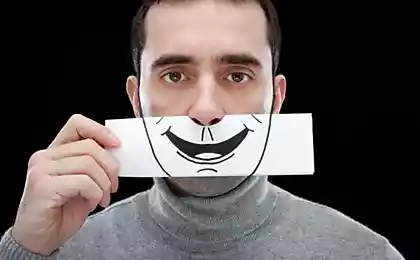1298
Liar Liar
As the hero of the popular series - "lying all" and in this he was absolutely right. Lie bankers and beggars, parents and children, the criminals and the police, and most lie of course, the officials - we can say it is an integral part of their job. Some people cheat skillfully, others only a clumsy attempt to hide the truth, but one way or another - all lie. In some cases, the truth is much more bizarre simple but false version of events, so before you bring the alleged liar to clean water, better make sure that it really leads you by the nose.
Some characteristic features of the behavior of liars can be found in this collection.
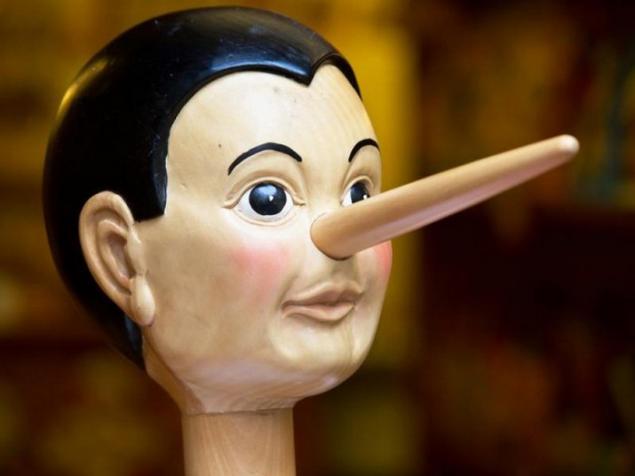
1. Look at the floor or directly in the eye

If a person is lying, as a rule, he avoids eye contact, so as not to give himself away. However, some liars on the contrary, try as often as possible eye contact with the speaker. Direct view "eye to eye" always gives credence to the narrative than successfully used by many Sophisticated and experienced liars. If during a conversation you can not even catch sight of a friend, and then he begins to steadily and persistently look in your eyes, do not believe the words of this hypocrite.
2. Extensive speech with long phrases

Liars tend to avoid direct short phrases - the longer monologues, the unhurried conversation goes and lying about have more time to think further phrases.
Very typical for cheaters questions like, "Where did you get this information?" Are also used to interlocutor launched into an explanation, giving the opportunity to develop a liar other steps to misinformation.
3. postures and gestures
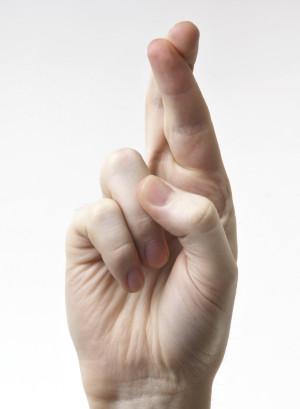
Body language is much more truthful speech - the one who is able to skillfully introduce companion astray, can not always control the smallest manifestation of its uncertainty.
If a man says very clearly, but it fidgets in his chair, facing away from the listener, constantly crosses his arms over his chest or touching your face, information received from the best to double-check.
4. Further details
Some cheaters in conversation like to mention various details - in their opinion, thanks to many parts false stories become more believable.
The parties do not always believe the story with a complex plot and lots of "lyrical digressions" true, so that this technique is often only reduces the credibility of the narrator, but that does not stop liars.
5. "The best defense - attack»

If you talk with a liar you dare to doubt his knowledge, be prepared to counterattack - likely hypocrite portray the deepest indignation your distrust, the next few minutes will assure that the honest man it you will not find in the whole world, and then try to turn the conversation other topics.
As a rule, people who speak the truth, do not behave - they do not need to avoid "slippery" in the conversation, so that they are much less nervous and do not try to rehabilitate himself in the eyes of the interlocutor, and stand quietly on his.
6. inconsistencies in various versions

Liars often decorate their bikes a large number of beautiful details, but on the really important not to speak. To be sure that the other person does not hide anything important essential, try to quietly write down his story on tape, and then come back to it in a few days and discuss some of the details. If a kind of "confrontation" with himself entangled in the source "testimony", forgetting what he said earlier, most likely, your suspicions of "foul play" basis.
7. Eye movements
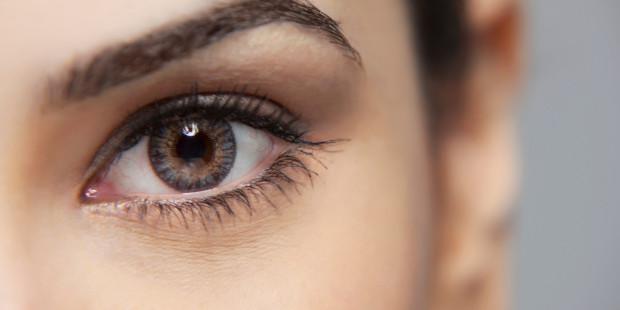
In conversation with right-hander note how moving his eyes - when being asked a question the narrator looks up and to the left - this indicates that he was trying to remember something, and moving to the right and look up usually occurs when a person "on the fly" invents comfortable version for you. Exactly the same phenomenon, only the mirror, observed in left-handers: memory access their eyes shift to the right and up, and when connected fantasy - up and left. If the hands overlap with eye movement, it is even more clearly speaks about possible fraud.
Also liars while talking often tend to blink and rub their eyes, so if you notice a similar behavior of the interlocutor, but vision problems he does not, he most likely lying.
8. The smell of sweat

Strictly speaking, if a person sweats, we can not say that he is a liar. Changes in the level of sweating - one of the main signs of cheating in a lie detector test, but many people tend to sweat heavily in rough or stress, so that the smell of sweat can only serve as indirect evidence of the falsity, but if people do not just suddenly sweating and flushed and even began to stammer something he is extremely anxious, or you hang noodles on the ears.
9. fleeting grimaces
To expose a person in a lie, watch carefully for changes in the expression of his face - at the beginning of the conversation liars often make mistakes, allowing true emotions affect their faces: it can be easy or almost imperceptible half-smile on the contrary, stressed serious grimace. Typically, these "facial recognition" lasted only a few seconds, but it can say a lot about the intentions of the interlocutor.
Some people unconsciously notice when a liar for a moment "removes his mask," but do not realize in this report and can not explain what caused the sudden surge of mistrust. This ability is often considered a kind of irrational "flair", but nothing supernatural about it - practice on a liar, everyone can become a walking "lie detector».
10. Repetition - the mother of involuntary recognition
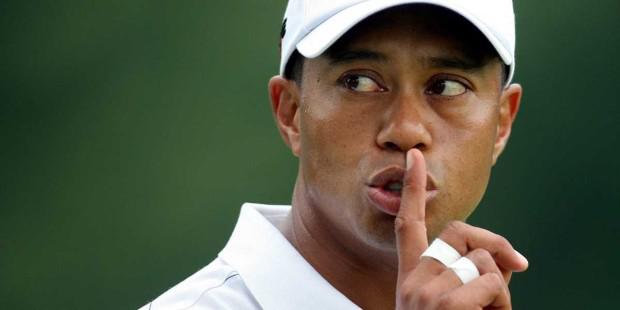
The interviewee told you more exciting story, but confidence in his words there? Ask to tell it again and at the same time to clarify certain details of which he mentioned earlier. If the narrator suddenly begins to think and stammer, most likely neither the first nor the second version of his story is not credible.
Some characteristic features of the behavior of liars can be found in this collection.

1. Look at the floor or directly in the eye

If a person is lying, as a rule, he avoids eye contact, so as not to give himself away. However, some liars on the contrary, try as often as possible eye contact with the speaker. Direct view "eye to eye" always gives credence to the narrative than successfully used by many Sophisticated and experienced liars. If during a conversation you can not even catch sight of a friend, and then he begins to steadily and persistently look in your eyes, do not believe the words of this hypocrite.
2. Extensive speech with long phrases

Liars tend to avoid direct short phrases - the longer monologues, the unhurried conversation goes and lying about have more time to think further phrases.
Very typical for cheaters questions like, "Where did you get this information?" Are also used to interlocutor launched into an explanation, giving the opportunity to develop a liar other steps to misinformation.
3. postures and gestures

Body language is much more truthful speech - the one who is able to skillfully introduce companion astray, can not always control the smallest manifestation of its uncertainty.
If a man says very clearly, but it fidgets in his chair, facing away from the listener, constantly crosses his arms over his chest or touching your face, information received from the best to double-check.
4. Further details
Some cheaters in conversation like to mention various details - in their opinion, thanks to many parts false stories become more believable.
The parties do not always believe the story with a complex plot and lots of "lyrical digressions" true, so that this technique is often only reduces the credibility of the narrator, but that does not stop liars.
5. "The best defense - attack»

If you talk with a liar you dare to doubt his knowledge, be prepared to counterattack - likely hypocrite portray the deepest indignation your distrust, the next few minutes will assure that the honest man it you will not find in the whole world, and then try to turn the conversation other topics.
As a rule, people who speak the truth, do not behave - they do not need to avoid "slippery" in the conversation, so that they are much less nervous and do not try to rehabilitate himself in the eyes of the interlocutor, and stand quietly on his.
6. inconsistencies in various versions

Liars often decorate their bikes a large number of beautiful details, but on the really important not to speak. To be sure that the other person does not hide anything important essential, try to quietly write down his story on tape, and then come back to it in a few days and discuss some of the details. If a kind of "confrontation" with himself entangled in the source "testimony", forgetting what he said earlier, most likely, your suspicions of "foul play" basis.
7. Eye movements

In conversation with right-hander note how moving his eyes - when being asked a question the narrator looks up and to the left - this indicates that he was trying to remember something, and moving to the right and look up usually occurs when a person "on the fly" invents comfortable version for you. Exactly the same phenomenon, only the mirror, observed in left-handers: memory access their eyes shift to the right and up, and when connected fantasy - up and left. If the hands overlap with eye movement, it is even more clearly speaks about possible fraud.
Also liars while talking often tend to blink and rub their eyes, so if you notice a similar behavior of the interlocutor, but vision problems he does not, he most likely lying.
8. The smell of sweat

Strictly speaking, if a person sweats, we can not say that he is a liar. Changes in the level of sweating - one of the main signs of cheating in a lie detector test, but many people tend to sweat heavily in rough or stress, so that the smell of sweat can only serve as indirect evidence of the falsity, but if people do not just suddenly sweating and flushed and even began to stammer something he is extremely anxious, or you hang noodles on the ears.
9. fleeting grimaces
To expose a person in a lie, watch carefully for changes in the expression of his face - at the beginning of the conversation liars often make mistakes, allowing true emotions affect their faces: it can be easy or almost imperceptible half-smile on the contrary, stressed serious grimace. Typically, these "facial recognition" lasted only a few seconds, but it can say a lot about the intentions of the interlocutor.
Some people unconsciously notice when a liar for a moment "removes his mask," but do not realize in this report and can not explain what caused the sudden surge of mistrust. This ability is often considered a kind of irrational "flair", but nothing supernatural about it - practice on a liar, everyone can become a walking "lie detector».
10. Repetition - the mother of involuntary recognition

The interviewee told you more exciting story, but confidence in his words there? Ask to tell it again and at the same time to clarify certain details of which he mentioned earlier. If the narrator suddenly begins to think and stammer, most likely neither the first nor the second version of his story is not credible.



